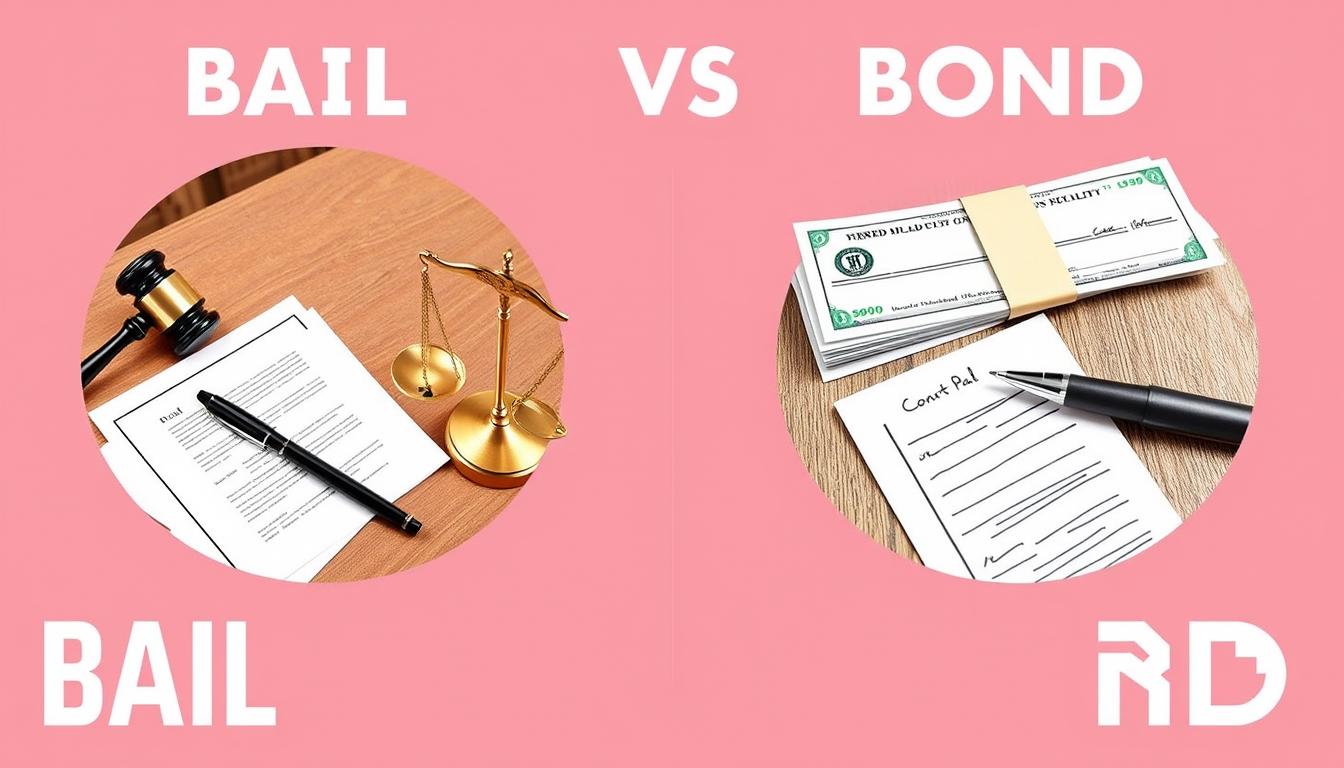The Relevance of Bail Bond Providers in the Legal System: Insights and Implications
Bail bond solutions serve a crucial feature in the legal system - bail bonds service. They supply offenders the chance to secure launch before test, which is crucial for maintaining the assumption of innocence. This procedure is filled with intricacies, specifically for low-income people that might struggle to pay for Bail. As discussions around reform gain momentum, the implications for both justice and social equity remain to be completely checked out
Recognizing the Bail Bond Process
The lawful system can often be complex, recognizing the bail bond procedure is vital for those steering it. When an individual is apprehended, a court generally sets a bail amount based on the severity of the defendant and the crime's history. Bail acts as an economic guarantee that the implicated will return for court appearances. If the offender can not afford the Bail, they might look for the services of a bail bond agent.
The representative bills a non-refundable fee, usually around 10% of the Bail amount, and gives the needed funds to the court. In return, the agent might call for collateral, such as building or valuables, to minimize their threat. Upon the offender's court look, the Bail is launched, but failure to appear can cause losing the collateral and additional penalties. Consequently, recognizing this procedure assists people make notified decisions during a challenging time.
The Duty of Bail Bonds in Maintaining Presumption of Innocence
The presumption of virtue is a basic principle of the legal system, guaranteeing that people are treated as innocent up until tried and tested guilty. Bail bonds play a necessary duty in upholding this concept by permitting offenders to protect their launch from protection while awaiting test. By offering an economic assurance, Bail bonds allow individuals to maintain their liberty, thereby promoting involvement in their defense and preserving their self-respect. This procedure reduces the prospective unfavorable impact of pretrial detention, which can lead to job loss, family members disruption, and raised social preconception. Furthermore, Bail bonds function as a suggestion that the lawful system recognizes the importance of reasonable treatment and the right to a protection. By doing this, Bail bonds not just minimize the concern on the judicial system but also strengthen the foundational idea that people need to not be penalized prior to a judgment is reached.
Economic Implications of Monetary Bail
Monetary Bail has substantial financial implications for individuals and the wider community. It can develop considerable monetary concerns for defendants and their families, particularly if they lack adequate sources. For several, protecting Bail might entail high interest fundings or utilizing savings, which can bring about financial strain and possible debt. This monetary pressure can negatively influence employment, as people might shed jobs because of imprisonment or the stress and anxiety of lawful proceedings.
In enhancement, the dependence on monetary Bail can add to broader social problems. Communities may experience enhanced destitution degrees as households divert funds from necessary needs to cover Bail prices. The financial differences aggravated by monetary Bail can bolster cycles of inequality, as those with less resources encounter greater difficulties in steering the lawful system. Overall, the economic effects of monetary Bail prolong past private cases, affecting community stability and financial wellness.
Difficulties Faced by Susceptible Populations in Securing Bail
Protecting Bail provides significant challenges for prone populaces, specifically those from low-income histories. Numerous people in these teams lack the funds to pay Bail amounts, which can cause long term imprisonment, also for small offenses. This situation aggravates existing socioeconomic disparities, as people remain not able to care or work for their households while restrained. Additionally, conventional bail bond services frequently need security or charges that are unattainable for low-income individuals, even more restricting their options.
The stigma linked with arrest can hinder area assistance, leaving these individuals isolated. Language obstacles and absence of access to lawful assistance can complicate their understanding of the Bail process. Therefore, many at risk individuals locate themselves trapped in a cycle of destitution and legal complexity, highlighting the immediate requirement for systemic modifications to address these injustices in the Bail system.
The Future of Bail Bond Services and Legal Reforms
As conversations bordering criminal justice reform gain energy, the future of bail bond services is significantly can you get out of jail without paying bail being looked at check that for its duty in perpetuating inequality. Doubters argue that the current system disproportionately impacts low-income people, resulting in an overreliance on financial ways to protect launch - bail bonds service. In response, a number of states are discovering choices to pay Bail, such as risk analysis devices and pretrial services, aimed at lessening biases in the legal procedure
These reforms may bring about a considerable makeover in how bail bond services operate, possibly decreasing their prevalence. Consequently, the market should adjust, advancing its methods to line up with a much more equitable legal framework. Stakeholders are also calling for greater transparency and accountability within the bail bond system, advising policymakers to resolve the systemic concerns that add to its drawbacks. Moving on, the future of bail bond services will likely rest on stabilizing public safety and security with social equity in the criminal justice system.

Often Asked Inquiries
Exactly How Do Bail Bond Representatives Figure Out the Expense of Their Services?
Bail bond representatives commonly identify their solution costs based upon the total Bail amount, neighborhood laws, the defendant's threat assessment, and the company's functional expenditures, frequently billing a percent of the Bail established by the court.
What Takes place if an Accused Does Not Appear in Court?
If a defendant stops working to appear in court, a bench warrant may be provided for their apprehension. Furthermore, any type of Bail published can be waived, resulting in financial loss for the bail bond representative and the offender.
Can Bail Bonds Be Moved to An Additional Individual?
Bail bonds are typically non-transferable, as they are look at more info linked to the specific offender and their situation. bail bonds service. Nonetheless, some territories might allow a transfer under certain problems, calling for authorization from the Bail bondsman and the court
Exist Alternatives to Typical Bail Bonds?
Alternatives to conventional Bail bonds include launch on recognizance, pretrial solutions programs, and home bonds. These choices purpose to ensure defendants appear in court while decreasing monetary concerns and promoting fairer legal processes for all entailed.

Exactly How Do Bail Bonds Effect Credit Rating Ratings?
Bail bonds do not straight impact credit history, as they are not reported to credit scores bureaus. However, failing to repay a bail bond can result in collections, which may adversely influence a person's credit report score.
Bail bond solutions offer an essential function in the legal system. The lawful system can often be intricate, comprehending the bail bond process is essential for those maneuvering it. By supplying a monetary warranty, Bail bonds make it possible for individuals to keep their freedom, thus assisting in participation in their defense and preserving their self-respect. Additionally, Bail bonds offer as a suggestion that the legal system identifies the significance of reasonable treatment and the right to a protection. Alternatives to traditional Bail bonds consist of release on recognizance, pretrial services programs, and property bonds.